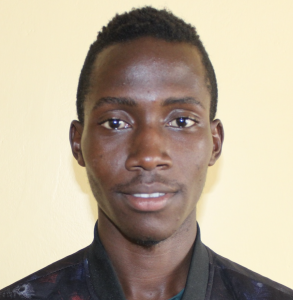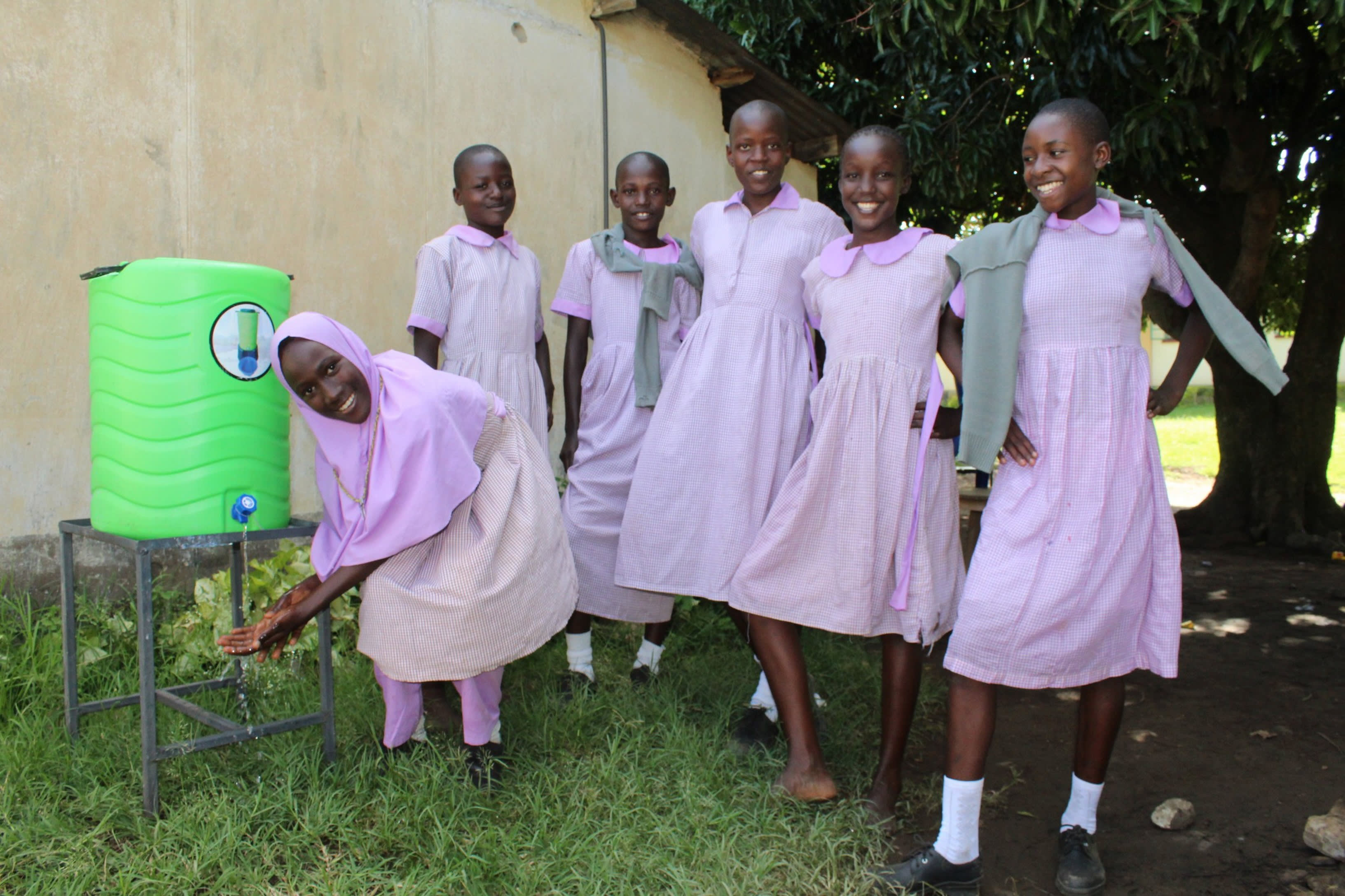Mayoni Township Primary School is located along the busy highway right next to Mayoni Market, so there's a lot of activity taking place outside the school. Next to the school are residential houses, which also make the place a bit noisy. The school has a huge compound with grass everywhere. Since it is in the lowlands, the soil is very fertile.
The school was started 17 years ago by the community members, and has grown to a population of 1,480 pupils. The school is the best performing school in the area, hence the huge increase in population over the years. They are faced with the challenge of not having enough classrooms to fit the huge population.
Even more importantly, they are faced with clean water scarcity. Because parents knew their children need water while at school, they dug a well behind the classrooms. It has a hatch that opens to a bucket and rope that are lowered to fetch water.
The water looks OK when you peek inside the well, but when it's out and in a clear container you can see how dirty it really is. Whoever dug the well must have stopped as soon as they hit water because it does not last through dry times. When the well doesn't have water, students must carry a large container of water to school each morning.
Students drink dirty water from the open well and end up missing school to deal with waterborne illnesses like typhoid.
"On behalf of the school, I have also witnessed the challenges of not having enough clean drinking water. One of the biggest challenges are diseases like typhoid that have really affected the students and this has led to an increase of absenteeism in the school and drop of school performance," said school board member Mr. Bakari Ramadhan.
What we can do:
Training
Training on good hygiene habits will be held for two days. The facilitator will use PHAST (participatory hygiene and sanitation transformation), ABCD (asset-based community development), CTC (child to child), lectures, group discussions, and handouts to teach health topics and ways to promote good practices within the school. The CTC method will prepare students to lead other students into healthy habits, as well as kickstart a CTC club for the school.
Handwashing Stations
We will deliver two handwashing stations to the school, and the club will fill them with water on a daily basis and make sure there is always a cleaning agent such as soap or ash.
VIP Latrines
The 18 latrines are in very poor condition. They are all almost full and very smelly. They are full of flies, making them very uncomfortable to use.
"The sanitation conditions of the school are wanting. Most of the toilets have been decommissioned and the rest are almost full," admitted Headteacher Dennis Ngalame.
"The government has threatened to shut down the school if measures to change the situation are not taken."
Two triple-door latrines will be constructed with local materials that the school will help gather. Three doors will serve the girls while the other three serve the boys. And with a new source of water on school grounds, students and staff should have enough to keep these new latrines clean.
Rainwater Catchment Tank
A 50,000-liter rainwater catchment tank will help alleviate the water crisis at this school. The school will also help gather the needed materials such as sand, rocks, and water for mixing cement. Once finished, this tank can begin catching rainfall that will be used by the school’s students and staff.
We and the school strongly believe that with this assistance, standards will significantly improve. These higher standards will translate to better academic performance!

 Rainwater Catchment
Rainwater Catchment
 Rehabilitation Project
Rehabilitation Project




































